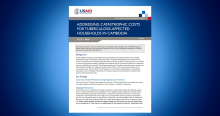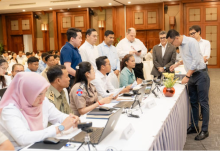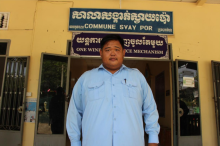Learning and knowledge sharing are fundamental to the LHSS Project. We invite you to search LHSS knowledge products and resources for the latest approaches, insights, and learning in the field of integrated health systems strengthening.

In 2023, USAID, through the Local Health System Sustainability Project (LHSS), funded the first nationally representative study on tuberculosis (TB) patient costs in Cambodia. Methodology of and results from the survey are described in the Cambodia Tuberculosis Patient Cost Survey Report Study aims were to (1) identify cost drivers associated with seeking TB diagnosis and treatment and (2) to assess the prevalence of catastrophic costs among TB-affected households.
The findings will guide policy formulation, particularly within existing social health protection programs, to mitigate financial barriers to TB care, and prevent impoverishment due to overwhelming costs. This brief details critical findings from the full report regarding factors contributing to catastrophic costs for TB-affected households in Cambodia, along with recommendations to alleviate these expenses and proposed next steps.

Creating a network with interoperable data management systems holds great potential to revolutionize Cambodia’s entire social safety-net ecosystem, providing improved efficiency for policymakers, implementing organizations, service providers, as well banks that subsidize services.

Communes in Battambang Province are among the first to devote local funds to HIV as part of Cambodia's decentralization of health programs.

In this webinar, we share best practices and learn how these efforts have helped to improve equitable access to care for vulnerable population groups including migrants, people living with HIV, and people living with TB.
The Social Protection Monitoring and Evaluation (M&E) Mechanism in Cambodia contributes to reducing poverty, vulnerability, and inequality by promoting and enhancing the effectiveness of the implementation of the National Social Protection Policy Framework (NSPPF).
Achieving universal health coverage (UHC) is a global priority and a keystone element of the 2030 Sustainable Development Goals. However, COVID-19 is causing serious impacts on tax revenue and many countries are facing constraints to new investment in health. To advance UHC progress, countries can also focus on improving health system technical efficiency to maximize the service outputs given the current health financing levels.
